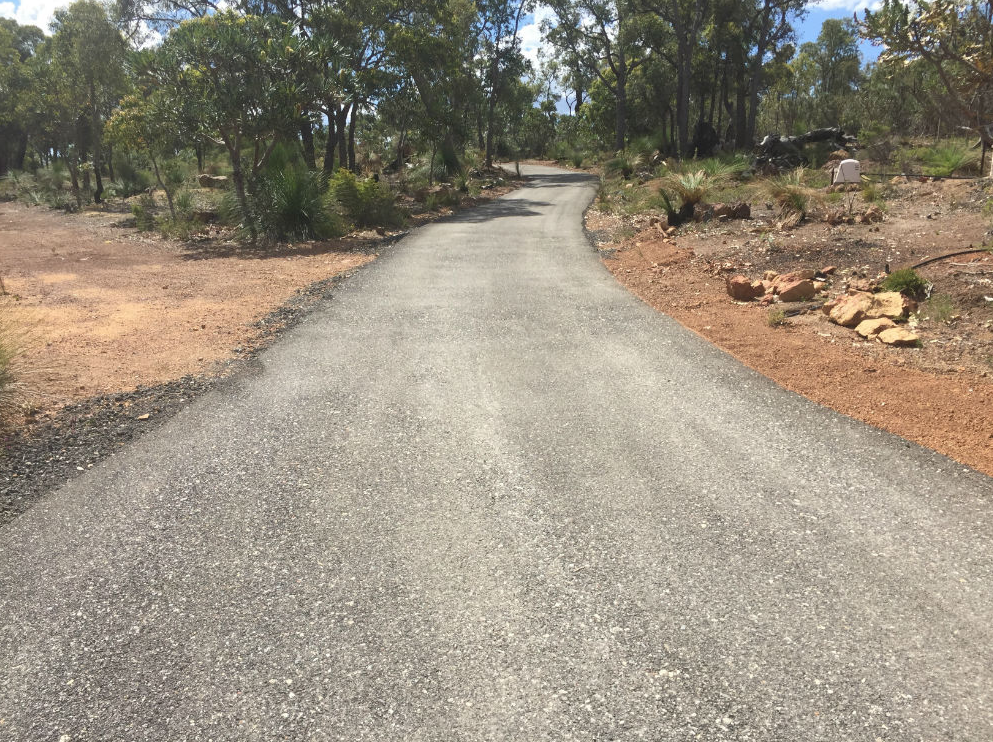When considering surfacing options for driveways, access roads, hardstands, or rural areas, asphalt and bitumen spray & seal are two of the most popular choices. While they both utilise bitumen as a binding agent, the application methods, performance, durability, and cost structure differ significantly.
At Langwarrin Road Tech in Langwarrin, VIC, we regularly guide clients through these differences to help them choose the most appropriate solution for their specific site needs.
What Is Asphalt?
Asphalt, commonly known as hot mix asphalt, is created by combining heated aggregates (such as crushed rock and sand) with hot bitumen in a controlled mixing process. The mixture is then machine-laid and compacted while still hot to form a smooth, dense, and uniform surface.
Benefits of Asphalt:
- Provides a sleek, clean, and durable finish
- Ideal for high-traffic areas due to its strength and flexibility
- Excellent weather resistance when installed and maintained correctly
- Low maintenance over time with options for patching or resurfacing
Asphalt is commonly used in residential driveways, car parks, commercial access roads, and pedestrian areas where a high standard of finish is important.
What Is Bitumen Spray & Seal?
Spray & seal is a two-stage surface treatment that begins with spraying hot bitumen directly onto a prepared road base. After the bitumen is applied, a layer of crushed stone (aggregate) is spread evenly and rolled into place. In many cases, a second layer of bitumen and aggregate is applied for added durability.
Benefits of Spray & Seal:
- More cost-effective for large or rural areas
- Faster to install with minimal curing time
- Provides a rough, textured surface that improves skid resistance
- Can be resealed periodically to extend service life
This method is widely used for rural driveways, farm roads, and hardstand areas where heavy-duty aesthetics are less of a concern.
Key Factors to Consider When Choosing
When deciding between asphalt and spray & seal, consider the following:
1. Traffic Load
Asphalt handles high traffic volumes and heavy loads better due to its density and flexibility. Spray & seal is better suited to light or moderate use.
2. Budget
Spray & seal is generally more affordable upfront, making it ideal for expansive rural areas. Asphalt requires a higher investment but offers long-term value.
3. Lifespan and Maintenance
Asphalt is longer-lasting and can often be repaired without full replacement. Spray & seal may require resealing every few years, depending on use.
4. Finish and Appearance
Asphalt delivers a smooth, dark finish, ideal for urban and residential settings. Spray & seal has a more rugged, gravel-like surface, better suited to informal or rural locations.
5. Surface Drainage and Preparation
Both surfaces rely heavily on proper base preparation and grading to ensure water drainage and stability. Skimping on preparation can lead to early failure, regardless of surface type.
Conclusion
Choosing between asphalt and bitumen spray & seal comes down to the specific needs of your site, the purpose of the surface, and your long-term expectations. Asphalt is best for high-performance applications with a clean look and strong durability, while spray & seal offers an economical, functional solution for rural or light-use areas.
At Langwarrin Road Tech, we take pride in providing expert surfacing services across Langwarrin, VIC. Whether you need a robust asphalt driveway or a cost-effective spray & seal treatment, our team delivers results tailored to your site conditions and goals. Contact us today to discuss your project and discover the right solution for your surface.
Call us on: 03 9068 7895
Click here to find out more about Langwarrin Road Tech
Click here to complete our contact form and see how we can help with your road needs.

